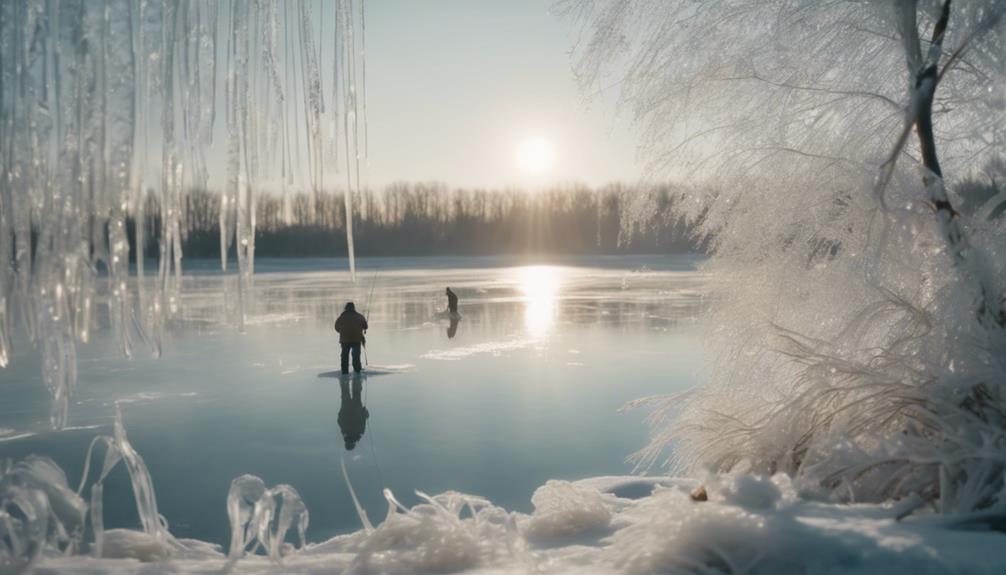Understanding the Basics of How to Catch
Catching is an essential skill in various sports and activities, from baseball to football and even fishing. Whether you’re looking to improve your athletic performance or simply want to enjoy a day outdoors, mastering how to catch can significantly enhance your experience. This guide aims to provide you with in-depth knowledge about the techniques, tips, and tricks for effectively catching objects, whether they are balls, fish, or anything in between.
Key Techniques for Catching Balls in Sports
When it comes to catching balls in sports, specific techniques can dramatically improve your success rate. For example, when catching a baseball, use your glove to create a pocket and position your body to face the ball. Keep your eyes on the ball and anticipate its trajectory. For football, secure the ball with both hands, ensuring your fingers are spread apart to create a larger catching surface. Practicing these techniques will not only help you catch more effectively but also build your overall confidence in various sports.
How to Catch Fish: Essential Tips for Anglers
If you’re interested in how to catch fish, understanding the right techniques and tools is crucial. Start by choosing the right fishing pole and bait, as they can significantly influence your success. Familiarize yourself with the local fishing regulations and the best times to fish for different species. Techniques such as casting and retrieving, trolling, and fly fishing require specific skills and practice. Additionally, always be patient and observant; fish are more likely to bite when you’re calm and focused.
Common Mistakes to Avoid When Catching
When learning how to catch, it’s essential to be aware of common mistakes that can hinder your progress. For beginners, one of the most frequent errors is not watching the object closely enough, leading to misjudgment of distance and speed. In fishing, using the wrong bait or fishing in the wrong location can lead to frustration. Whether in sports or fishing, rushing the process or not practicing consistently can also result in missed opportunities. Learning from these mistakes is vital to improving your catching abilities.
Improving Your Hand-Eye Coordination for Better Catching
Hand-eye coordination is a critical factor in how to catch effectively. To enhance this skill, engage in exercises that require tracking and catching moving objects. Activities such as playing catch with a friend, using reaction balls, or practicing with a tennis ball can help improve your reflexes and coordination. Additionally, incorporating vision training exercises can significantly boost your ability to track and anticipate the movement of the object you are trying to catch.
The Role of Mental Focus in Catching Skills
Mental focus plays a significant role in how to catch effectively. Whether you are playing a sport or fishing, the ability to concentrate on the task at hand is crucial. Techniques such as visualization can prepare you mentally for successful catching. Visualize yourself catching the ball or fish successfully before it happens. Practicing mindfulness and reducing distractions will also help you stay focused during critical moments, improving your overall performance.
Equipment and Gear That Can Enhance Your Catching Skills
When discussing how to catch, the right equipment and gear can make a significant difference. For sports, using a high-quality glove or mitt can enhance your catching ability, while in fishing, employing the correct rod, reel, and bait is essential. Consider investing in tools that are suited to your specific needs, whether it’s specialized fishing gear or sports equipment designed to improve your performance. Additionally, protective gear such as gloves and pads can help prevent injuries while catching.
Practicing Catching Techniques: Drills and Exercises
To master how to catch, consistent practice is key. Engage in drills that reinforce your catching skills. For sports, set up a series of catching drills that focus on different types of catches, such as high catches, low catches, and catching on the move. In fishing, practice casting and reeling in different scenarios to become comfortable with the process. Joining a local team or fishing group can also provide opportunities for practice and feedback, helping you to continually improve your skills.
In conclusion, mastering how to catch is a multifaceted skill that requires practice, focus, and the right techniques. Whether you’re catching a ball or a fish, the principles of catching remain the same. By understanding the fundamentals, avoiding common mistakes, and continually practicing, you can enhance your catching abilities and enjoy sports and fishing to their fullest. Remember, the journey to becoming a proficient catcher is as rewarding as the catch itself!
